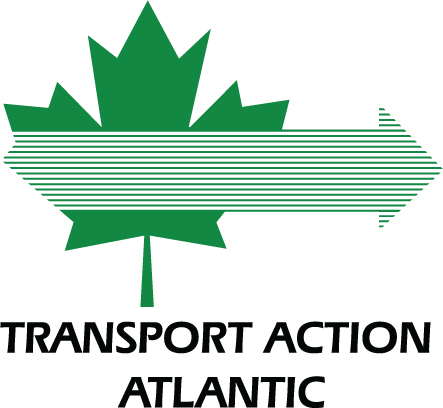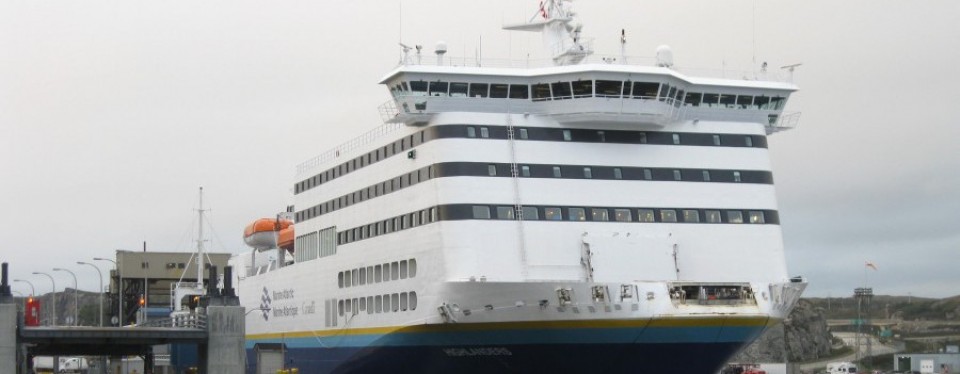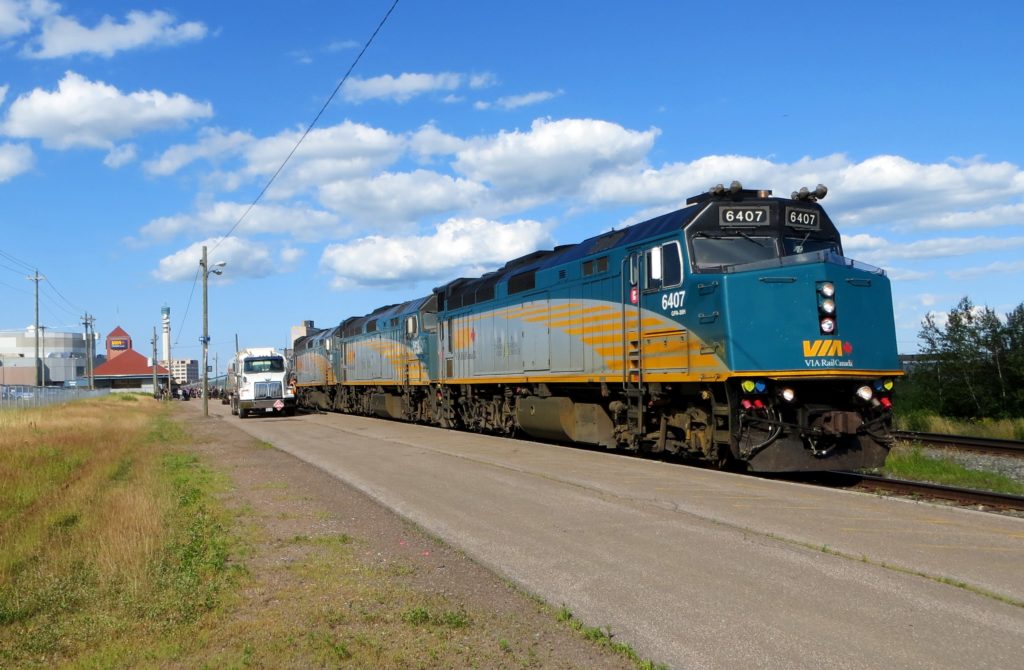Transport Action Atlantic is asking why it is taking so long for VIA Rail and the Government of Canada to deliver on an outstanding promise to improve frequency of passenger rail services in the Maritimes. Today is National Railway Day – the anniversary of the last spike ceremony that marked completion of Canada’s continuous rail link from coast to coast on November 7, 1885.
“It’s a very appropriate occasion to pose this question,” says Ted Bartlett, president of the regional public transportation advocacy group, “and not just because it’s a date that was so important in the development of Canada’s nationhood. It was three years ago this week that VIA’s CEO unveiled a plan to reintroduce regional service within Nova Scotia and New Brunswick, using the same type of rail diesel cars (RDCs) that had been discontinued in January 1990 as part of sweeping cuts mandated by the Mulroney Government. His timeline called for the routes between Moncton and Halifax and Moncton and Campbellton to be operational by late summer or early fall of 2016.
“That goal, unfortunately, was not met. Neither were several other target dates subsequently offered. We’re still waiting, and VIA management is no longer even suggesting possible start dates. Furthermore, we understand that there will be no additional frequency or capacity offered during the holiday travel season this year, something that had become standard practice in recent years to augment the very limited schedule normally offered in this region.”
Bartlett acknowledged that the Government of Canada has committed a major investment to re-equip all of VIA’s aging rolling stock in the Quebec City-Windsor Corridor, but has shown little interest in upgrading service elsewhere. He added, however, that it would be unfair to blame the current situation entirely on VIA’s management team.
“If our political leaders considered passenger rail in this region to be important, VIA as a federal Crown corporation would be directed to get on with it,” he said. Our elected MPs – all of whom belong to the governing party – should be insisting that the needs of this region not be forgotten.
“Our mantra at TAA has become ‘Canada doesn’t end at Quebec City’” Bartlett continued. “Rail passenger service in the Maritimes remains a national embarrassment. For example, we still have that sorry picture of the oldest named passenger train in North America crawling along a 60-mile stretch of badly deteriorated track in northern New Brunswick at 30 miles per hour or less. Forty years ago the Ocean safely ran at 75 miles per hour over most of that route – and it took nearly two hours less to travel from Moncton to Campbellton than it does today. Certainly it’s not something we want to celebrate on National Railway Day 2018!”
“VIA’s so-called ‘regional service’ using 60-year-old RDCs was not a concept that we wholeheartedly endorsed,” says TAA vice-president Ashley Morton. “We extended a lukewarm welcome to that announcement three years ago largely because it promised something better than the existing bare-bones service – a situation that VIA’s management now acknowledges isn’t meeting local needs. We also considered that regional service to Moncton might be a good fit with the Halifax commuter rail proposal. But our ultimate goal remains to have the Ocean restored to its former status as a daily through train between Halifax and Montreal.
“There’s no question that the long-overdue modernization of VIA’s corridor services was the right thing to do,” he said. “But we need to hold the feet of our elected representatives to the fire, and pressure them to insist that Canadians elsewhere in the country have legitimate needs and expectations as well. What we are asking is reasonable, and will not bankrupt the treasury.”
Transport Action Atlantic maintains that a well-marketed and better-equipped daily train could enhance ridership revenues to the point where they would cover the major portion of incremental costs, resulting in a greatly reduced subsidy requirement per passenger-mile and far better value for Canadian taxpayers. Analysis of figures released by VIA indicate that savings realized by the ill-advised 2012 decision cutting service to tri-weekly were negligible.
Transport Action Atlantic is a regional advocacy group, promoting convenient, affordable, safe and environmentally-friendly transportation solutions in the four Atlantic provinces. The organization will hold its semi-annual board meeting in Dartmouth on December 1. The agenda will focus on urban, rural and intercity public transportation, with particular emphasis on new initiatives to restore and strengthen options that reduce dependency on automobile use.







It’s a shame Via couldn’t have purchased the Bombardier Talent 643 trains from Ottawa, which were used for around 14 years on the city’s O-Train service. It’s a nice, comfortable ride.
The challenge with the Talents is that Transport Canada rules won’t allow them to operate in a mainline context with other traffic (especially freight), due to their lightweight construction. They were able to operate on the O-train because the line is separated from other traffic (when there was initially some freight service still on the line, it was at night – so temporally separated from O-Train operations). So there’s really no VIA service where they’d be able to operate. That may change in the near future, now that the FRA in the US is updating their passenger car safety standards and Transport Canada may follow suit.
It’s a shame that there’s been no buyer for those Talent sets, as they were indeed a very nice ride. Seems like they could have worked well for another commuter service somewhere, but as they continue to rot away it seems more likely that they’ll end up on the scrap heap.